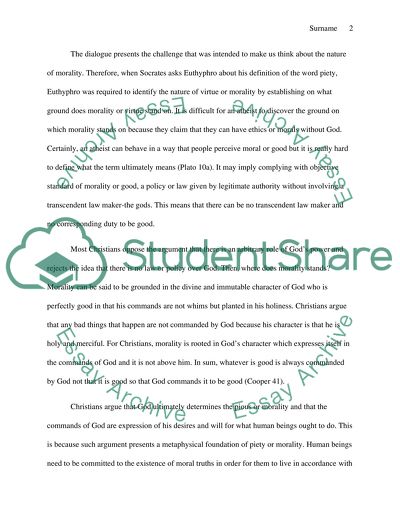Cite this document
(“Euthyphro (Platos Early Dialogues) Essay Example | Topics and Well Written Essays - 2500 words”, n.d.)
Retrieved from https://studentshare.org/philosophy/1398287-euthyphro-platos-early-dialogues
Retrieved from https://studentshare.org/philosophy/1398287-euthyphro-platos-early-dialogues
(Euthyphro (Platos Early Dialogues) Essay Example | Topics and Well Written Essays - 2500 Words)
https://studentshare.org/philosophy/1398287-euthyphro-platos-early-dialogues.
https://studentshare.org/philosophy/1398287-euthyphro-platos-early-dialogues.
“Euthyphro (Platos Early Dialogues) Essay Example | Topics and Well Written Essays - 2500 Words”, n.d. https://studentshare.org/philosophy/1398287-euthyphro-platos-early-dialogues.


